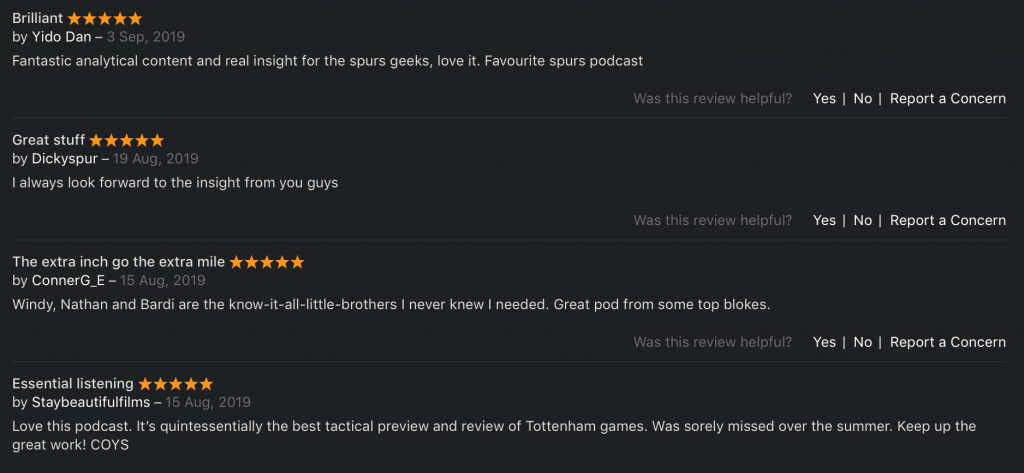This summer will likely see Spurs re-build the squad both from the top-down and bottom up. By that I mean that we will need to add first team-ready additions in at two or three key areas, but also prepare for the future, with one eye on the home grown players rule.
There’s a slight misconception about the requirement itself — people tend to think that clubs must name eight home grown players in their squads. That’s not strictly true. We could name fewer than eight home grown players, but would need to also name fewer than 25 players in our squad — for example, if we only have seven home grown players, we can name a 24-man squad, 6/23, 5/22, etc.
A home grown player is defined as one whom, irrespective of nationality or age, has been registered with any club affiliated to The Football Association or the Football Association of Wales for a period, continuous or not, of three entire seasons, or 36 months, before his 21st birthday (or the end of the season during which he turns 21). Source: Premier League.
Spurs will not need to name players who are under 21 on our squad list, though, so could augment the list with youngsters. This would mean that we could manage with, say, a 22-man squad with just five homegrown players, but would need plenty of under-21 players who are ready to play. For the 2019/20 campaign, players considered ‘under 21’ will have been born on or after 1st January 1998. This means that for the coming season we still have a number of ‘freebies’ who are fairly well-known names: Juan Foyth, Alfie Whiteman, George Marsh, Marcus Edwards, Oliver Skipp, and Troy Parrott (presented in age order). Of these, one would expect Foyth and Skipp to be included in Pochettino’s thinking on a regular basis, with the others a bit of a mystery at this stage.
Going back to the over-21s, Spurs currently have 12 home grown players who would need to be named in order to be included in the Premier League squad list. But of those, only five or six are expected to remain next season: Danny Rose, Ben Davies, Harry Kane, Harry Winks, Dele Alli and possibly Kyle Walker-Peters.
Kieran Trippier, Luke Amos, Anthony Georgiou, Joshua Onomah, Shayon Harrison and Cameron Carter-Vickers are all expected to be either sold or loaned out. Until this happens, though, there are a lot of variables to consider, so it is difficult to speculate too much on the final make-up of the list.
One other consideration is the Champions League. The Champions League rules are a little different — have a look at page 40 of their regulations. UEFA don’t just want clubs to have players trained elsewhere in the FA structure — they have additional requirements for club-trained players. They want to encourage clubs to bring through their own young players.
It is clear to see why Spurs may want to revert back to the previous policy of signing young, English players. Not only are those players going to make life easier for future squad structure, but England is producing genuinely world-class talent now. Whereas clubs used to look for value in Europe, the value may now be right under our noses, and it’s important that Premier League clubs appreciate just how vibrant and competitive the Football League is and how good some of the elite players both are and can be.
We have signalled our intent to look towards the Championship with the signing of Jack Clarke, but this could continue across the summer, with a number of other players linked as well.
That said, our own talent pool is brewing beneath the first team and, as we can see, that’s important for the Champions League regs. There are players, some already mentioned above, who could have an impact. But, as with many other Premier League clubs, creating the runway to get them from second year scholar (age 17/18) to first team is an issue for Spurs, and probably the next piece in the jigsaw once the recruitment is dealt with. One key method could be forming a strategic partnership with a Football League club, and there is a chance that QPR could be one such partnership.
With Mark Warburton, a Spurs fan who has some historic links with Spurs (from the NextGen Series days), now in charge at QPR, it may become a formalised route. Luke Amos, the 22-year old midfielder, is likely to be sent to Loftus Road for the season. They have also picked up Dylan Duncan, released last month by Spurs, as a free transfer to add to a wider group of players previously at Spurs (Massimo Luongo, Aramide Oteh, Grant Hall, Charlie Owens). Perhaps this partnership will strengthen through more loans and these players can return to Spurs with minutes under their belt and a report card from a man that the club’s hierarchy respects.
Longer-term, I do think Spurs need to focus on that link between Academy and first team. Even if the quality of players coming through is ultimately not ‘good enough’ for when we want our first team to be, young talent can be used to pad out the squad, and can be highly profitable in terms of onward sales. To me it seems to be a bit of a no-brainer to try to develop in this area.
